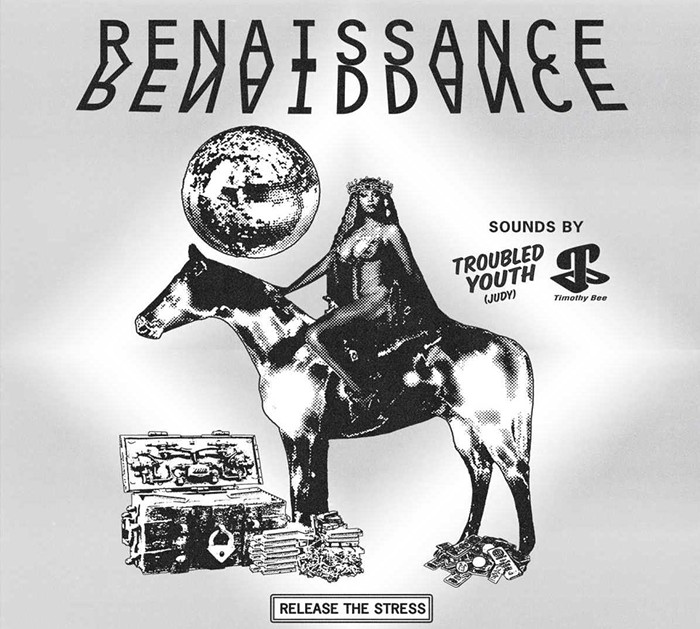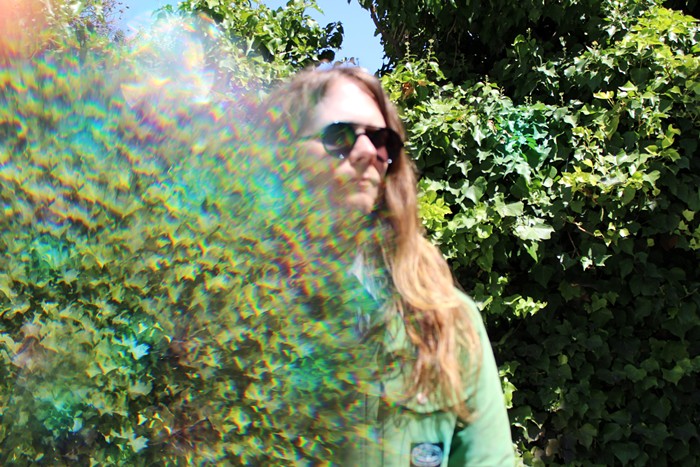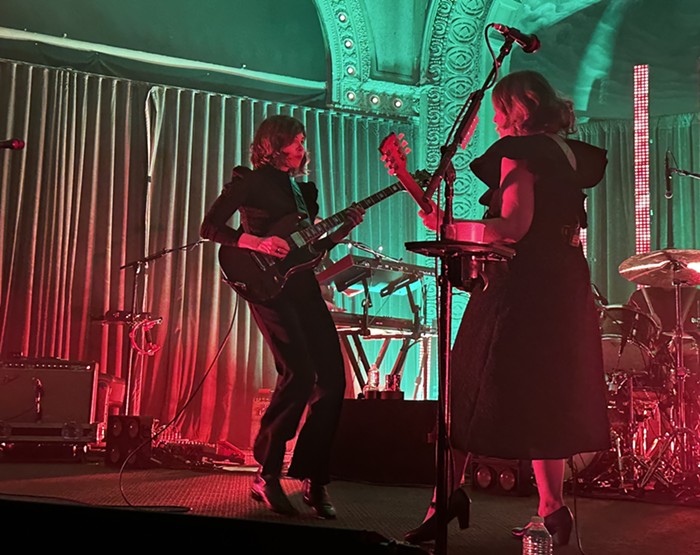IT'S BECOME DISTURBINGLY common to read characterizations of Joanna Newsom as mystical or fairylike. This is a lazy generalization, one that minimizes the profound talents of the singer, harpist, pianist, composer, and producer. And the frequent comparing of her voice to that of a child or a woodland nymph is decidedly belittling and gendered—Newsom's vocals are complex in their masterfully controlled unpredictability. Though unconventional, hers is not unlike the unusual timbres of Kate Bush and Joni Mitchell, and like those artists, Newsom's entire career has been unfairly labeled inescapably feminine—see Vanity Fair's 2010 piece "The Virile Man's Guide to Liking Joanna Newsom."
However, it's admittedly difficult to untangle the artist from this sexist rhetoric, in part because Newsom's music is pure enchantment. Her harp-driven chamber folk spins cerebral, often referential lyrics into golden storylines, undeniably evoking imagery of medieval days of yore. But perhaps there's a way to contextualize the magic of Newsom's music without completely pigeonholing her. She isn't simply bound to these misty fabled realms—she's an incredibly powerful, intuitive narrator telling us fairytales about our own reality.
In October, Newsom released Divers, which initially seems like a surrealist diss track to time. Over 11 songs, she narrates a Lord of the Rings-type quest to find a faraway land where life and love are unaffected by time. She grasps desperately for this imagined world that won't rot, startling at this world's changing seasons. On "Same Old Man" she sings to a leaf, "Hey little leaf, lying on the ground/now you're turning slightly brown!/Why don't you come back on the tree, turn the color green the way you ought to be?"
On the orchestral opening track "Anecdotes," Newsom weaves a tale about this eternal place where "the dew won't dry" and "the light won't bend." She seeks refuge here, where she can preserve a love she wishes could transcend the years. Divers functions as a heartbreaking lamentation that nature's decay will one day unavoidably consume her loved one.
On "Sapokanikan," Newsom tells a forgotten history of New York City's largest, looming ghost—the Native American town Sapokanikan, now long-gone, "lone and levelled by some unrecorded and powerful hand." In the track's music video, Newsom is a tour guide of New Sapokanikan, exuberantly dancing through the streets to her own offbeat elegy before ruing, "The city is gone/Look and despair."
"Leaving the City" is Divers' most chaotic moment, where she fears, "When the spirit bends/beneath knowing it must end." Her harp listlessly meanders against a Marxophone's unsettling murmur, before erupting manically as urban bustle reminds Newsom that, "The longer you live, the higher the rent." On the album's title track, a seven-minute opus, she submerges herself in life's uncertainty, fearing death's "infinite capsize."
After spending an entire album searching for this mythical land devoid of time, on "Time, as a Symptom" Newsom realizes, "It pains me to say, I was wrong/Love is not a symptom of time/Time is just a symptom of love/And of the nullifying, defeating, negating, repeating joy of life." This ends her quest, as she accepts that "the moment of your greatest joy sustains," since even time doesn't have to rob life of its happiness.
Joanna Newsom's music isn't entrenched in the mystical—it's simply a lens through which she narrates an invariably human experience. Divers is her best work yet, a deep-sea exploration of life's unknowable expiration, before she advises listeners, "Stand brave, life-liver... Time moves both ways."


















